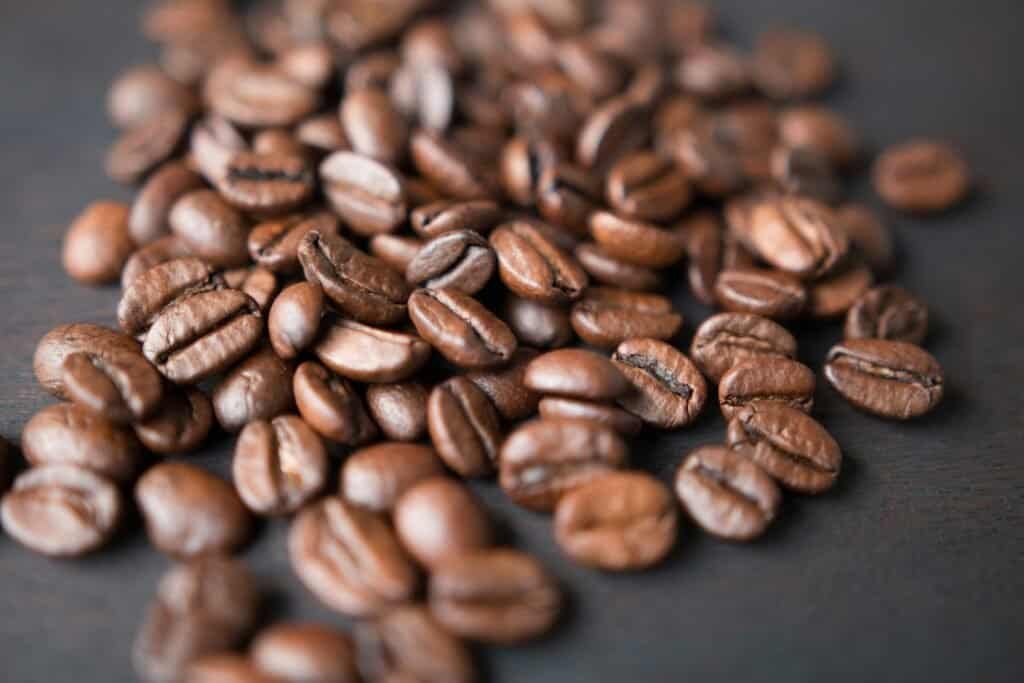Many coffee drinkers often ask the question, does adding milk to coffee reduce caffeine content? The simple answer is that the caffeine content remains unaffected by the addition of milk. Therefore, a cup of coffee with milk and a cup of black coffee contain the same amount of caffeine if the volume of coffee is the same.
This misconception may arise from the perception that milk can dilute the coffee, hence assuming it dilutes the caffeine as well. However, caffeine’s chemical structure and potency do not change when milk is added.
Milk can alter the flavor and reduce the bitterness of coffee, making it appear milder, but it does not decrease the stimulant’s strength.
For those of you looking to decrease your caffeine intake, options should include choosing decaffeinated coffee or coffee blends with naturally lower levels of caffeine.
It’s also worth noting that the type of coffee bean, the roast, and the brewing method can hugely influence the caffeine content, as can the serving size. Milk has no bearing on these variables and therefore does not affect the actual caffeine levels in a coffee.
Coffee and Milk Interaction – A Chemistry Lesson
When milk is added to coffee, the chemistry of the beverage changes, but the caffeine content remains unaffected. In reality, it’s all about the specific interactions between caffeine and milk proteins, as well as the changes in acidity, bitterness, and how temperature influences these components.
Caffeine and Casein Dynamics
Caffeine, the stimulant found in coffee, is not bound or altered by the addition of milk.
Whole milk, skim milk, almond milk, or oat milk each contain varying proteins, with casein being the dominant protein in cow’s milk. The presence of casein does not interact with caffeine to reduce caffeine in coffee; instead, it modifies the texture and potentially the flavor profile of the beverage without affecting the stimulant’s potency.
Impact of Milk on Coffee Acidity and Bitterness
Adding milk to coffee can alter the perceived acidity and bitterness. The pH level of black coffee is typically around 5, which is slightly acidic. Milk has a higher pH level and can neutralize some of the acidity.
The proteins in milk, particularly casein, can also bind to tannins and polyphenols, components that contribute to bitterness, resulting in a smoother taste. However, this does not chemically reduce the amount of these components; it just changes how they are perceived by our taste buds.
Effects of Temperature on Caffeine and Milk Proteins
The temperature at which coffee is brewed and milk is added can have an impact on the solubility and stability of milk proteins and caffeine.
Hotter temperatures typically enhance the solubility of caffeine, ensuring it remains consistent regardless of milk addition. In contrast, milk proteins may denature at higher temperatures altering the texture and potentially creating a slight change in taste, but the overall caffeine content stays the same.
Nutritional and Health Considerations
When considering the addition of milk to coffee, it’s also important to examine the potential changes in caloric and nutrient content, as well as how these modifications might affect overall health outcomes and caffeine levels in the body.
Caloric and Nutrient Content Analysis
Adding milk to coffee introduces additional calories and nutrients into the beverage. Whole milk, for example, contains approximately 9 calories per tablespoon, along with added fats and sugars. This can increase the overall calorie intake for individuals.
On the other side of the coin, using skim milk adds fewer calories, generally about 5 calories per tablespoon, and minimal fat. Milk also contributes beneficial nutrients such as calcium and vitamin D, which are vital for bone health.
- Nutrient addition from whole milk (per tablespoon):
- Calories: 9 kcal
- Fat: 0.5g
- Calcium: 16mg
- Nutrient addition from skim milk (per tablespoon):
- Calories: 5 kcal
- Fat: 0.1g
- Calcium: 19mg
Coffee Consumption and Health Outcomes
Many Americans incorporate coffee into their daily routine, with some studies suggesting that moderate coffee consumption may have certain health benefits, like reducing the risk of certain diseases.
However, when milk is added, this can alter the combination of compounds ingested. On one hand, it can help to mitigate stomach discomfort that some experience when drinking black coffee, as milk buffers the stomach lining against coffee’s acidity.
On the other hand, the introduction of milk might slightly raise LDL cholesterol levels due to the added fat content, which is especially significant in whole milk.
Therefore, the impact of adding milk to coffee on health can be both beneficial and detrimental, depending on the individual’s existing diet and health conditions.
Options for Modifying Caffeine Intake
For individuals looking to modify their caffeine intake, adding milk to coffee does not actually reduce the amount of caffeine in the drink. However, it can dilute the caffeine concentration. Those seeking to reduce their caffeine consumption without altering the taste significantly might opt for decaf or decaffeinated options.
Alternatively, you can reduce the brewing time of your coffee to lower caffeine levels.
Each modification strategy should be considered in moderation to balance the desired caffeine levels with personal health goals.
- Caffeine modification strategies:
- Use decaffeinated coffee
- Shorten brewing time
- Dilute with milk or water (does not reduce total caffeine content)
So if you’ve ever found yourself wondering, does adding milk to coffee reduce caffeine? Then we hope our guide has helped you and explained the reasons why!


